
Videos
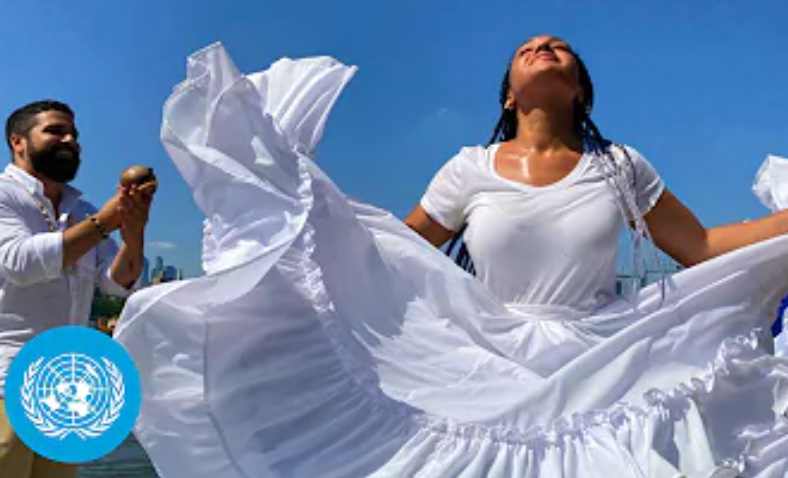
Dreams & Defiance: Centering Cultural Expressions of People of African Descent
In celebration of the International Day of People of African Descent, UN Human Rights celebrates the important contributions of people of African descent worldwide. egments in the film share how individuals and communities celebrate their diverse stories while recognizing the cultural, artistic, scientific, and political contributions of people of African descent. Many of the arts shared highlight the interconnectedness of past to present, including the legacy of the transatlantic trade in enslaved Africans, colonialism, mass incarceration, and systemic racism.
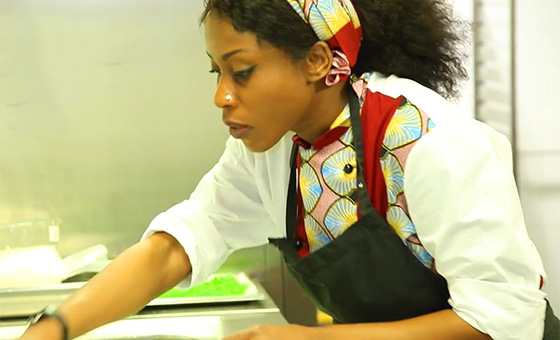
Chef Victoire Gouloubi: “We must recognize the beauty of the African gastronomic heritage!”
For Afrofoody, Chef Gouloubi tells the importance of promoting a positive image of the African culinary heritage to combat negative stereotypes and racism. Afrofoody is a culinary blog to promote the cultural heritage and greater recognition of the diverse culture of people of African descent. The project is supported by the Office of the High Commissioner for Human Rights. It features a compilation of recipes of African origin that include a brief story of how each recipe carries a piece of history in itself, as well as interviews from Chefs of African descent.
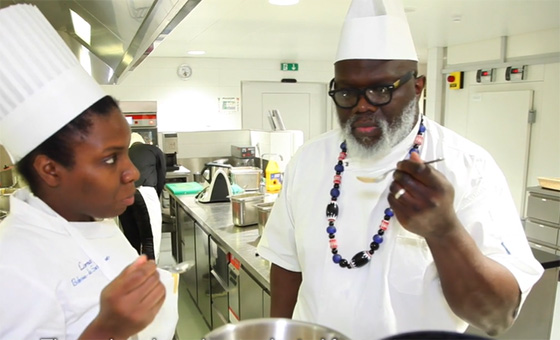
Chef Christian Abégan: “Culinary arts can promote diversity and tolerance.”
For Afrofoody, Chef Christian Abégan traces the Afro-descendant cultural heritage to our plates. Afrofoody is a culinary blog to promote the cultural heritage and greater recognition of the diverse culture of people of African descent. The project is supported by the Office of the High Commissioner for Human Rights. It features a compilation of recipes of African origin that include a brief story of how each recipe carries a piece of history in itself, as well as interviews from Chefs of African descent.
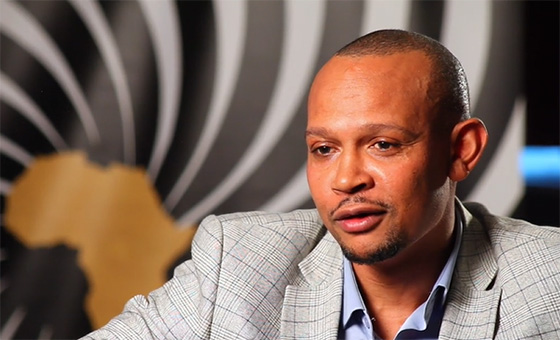
Chef Ahamada Binali: “Better understanding of the Comorian cuisine brings about a positive change.”
For Afrofoody, Chef Binali explains how culinary arts can become a vector of development for people of African descent. Afrofoody is a culinary blog to promote the cultural heritage and greater recognition of the diverse culture of people of African descent. The project is supported by the Office of the High Commissioner for Human Rights. It features a compilation of recipes of African origin that include a brief story of how each recipe carries a piece of history in itself, as well as interviews from Chefs of African descent.
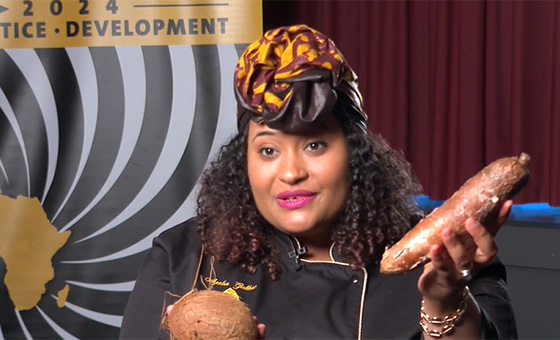
Chef Ayaba Galbas: “Despite history and geographic dispersions, the cooking techniques remain the same in Africa and in the diaspora”
For Afrofoody, Chef Ayaba Galbas explains why cooking is fundamental for people of African descent to reconnect with their history and identity. Afrofoody is a culinary blog to promote the cultural heritage and greater recognition of the diverse culture of people of African descent. The project is supported by the Office of the High Commissioner for Human Rights. It features a compilation of recipes of African origin that include a brief story of how each recipe carries a piece of history in itself, as well as interviews from Chefs of African descent.
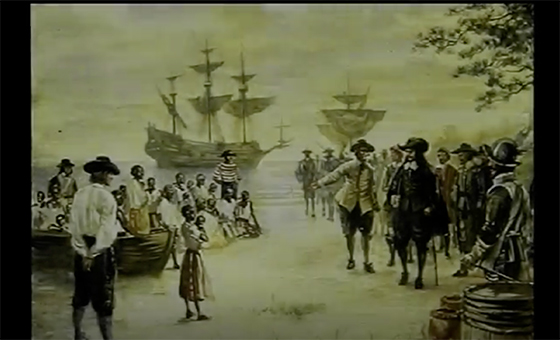
Slave Routes: A Global Vision
“Slave Routes: A Global Vision” is an educational and informative documentary supported and produced by UNESCO. It presents the diverse histories and heritages stemming from the global tragedy of the slave trade and slavery. Aimed at a general audience, it provides an overview of the massive deportation of African populations to different parts of the world including the Americas, Europe, the Indian Ocean, the Middle East, and Asia.
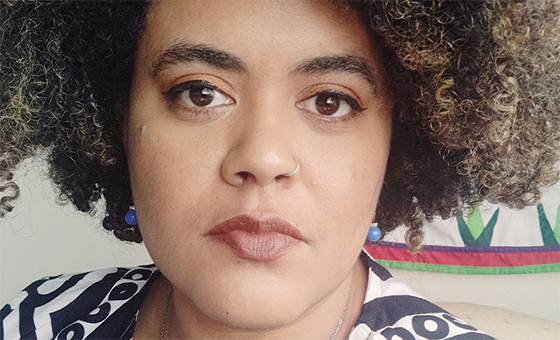
Brazil: Fighting the double epidemic of racism and COVID-19
As Brazil’s caseload of COVID-19 continues to rapidly escalate, so too does political and societal polarisation, and human rights concerns. Dalila Negreiros is a young Brazilian activist and a former UN Human Rights Fellow of African Descent. Her organisation, Nosso Coletivo Negro do DF (Our Black Collective of Brasília), aims to promote affirmative actions for black students and workers, and to contribute to political discussions and decisions on strategies to fight racism. For Dalila, racism in Brazil has exacerbated the consequences of the COVID-19 pandemic, and black people have been disproportionately affected.
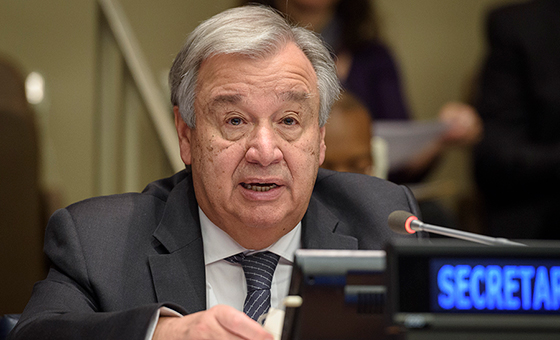
Secretary-General's message on the International Day of Remembrance of the Victims of Slavery and the Transatlantic Slave Trade
Video message by UN Secretary-General António Guterres on the International Day of Remembrance of the Victims of Slavery and the Transatlantic Slave Trade (25 March, 2020)
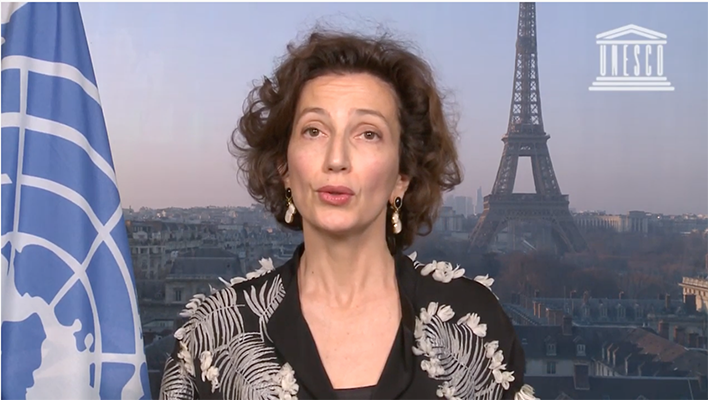
World Day for African and Afrodescendant Culture
Established by UNESCO in 2019 and held every year on 24 January, World Day for African and Afrodescendant Culture aims to celebrate the many vibrant cultures of the African continent and African Diasporas around the world, and promotes them as an effective lever for sustainable development, dialogue and peace. As a rich source of the world’s shared heritage, promoting African and Afrodescendant culture is crucial for the development of the continent, and for humanity as a whole.
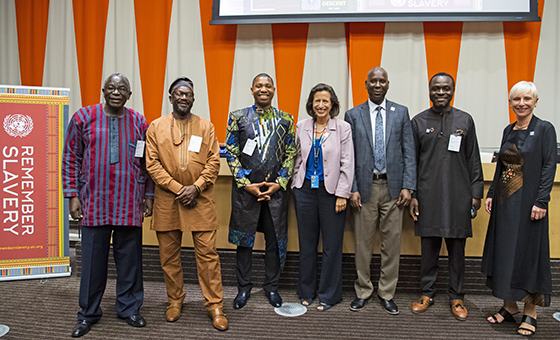
Bigger Than Africa - Film Screening at the UN (Opening Remarks and Panel Discussion Following the Movie, 2 October 2019)
"Bigger Than Africa" film screening and panel discussion at the United Nations on 2 October 2019. Organized by the United Nations Department of Global Communications and MIPAD (Most Influential People of African Descent) in support of the Decade for People of African Descent and the Remember Slavery Programme. UN Photo/Evan Schneider
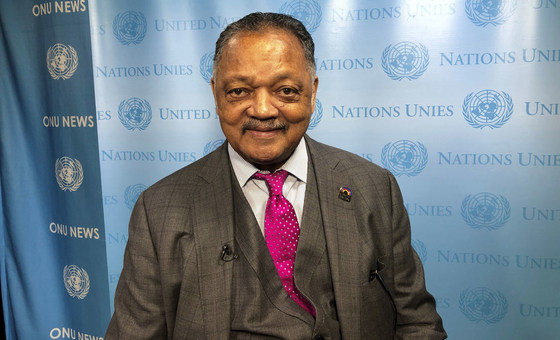
'Global coalition of conscience' needed for justice: Rev. Jesse Jackson
Racial freedom has been established across the United States but the “next phase” of the struggle involves full and equal access to education, healthcare and development. That’s according to the Rev. Jesse Jackson, the veteran US civil rights leader, who was at UN Headquarters on 21 March 2018 to speak at an event marking a Recognition for the Contributions, Achievements and Challenges of People of African Descent Worldwide.
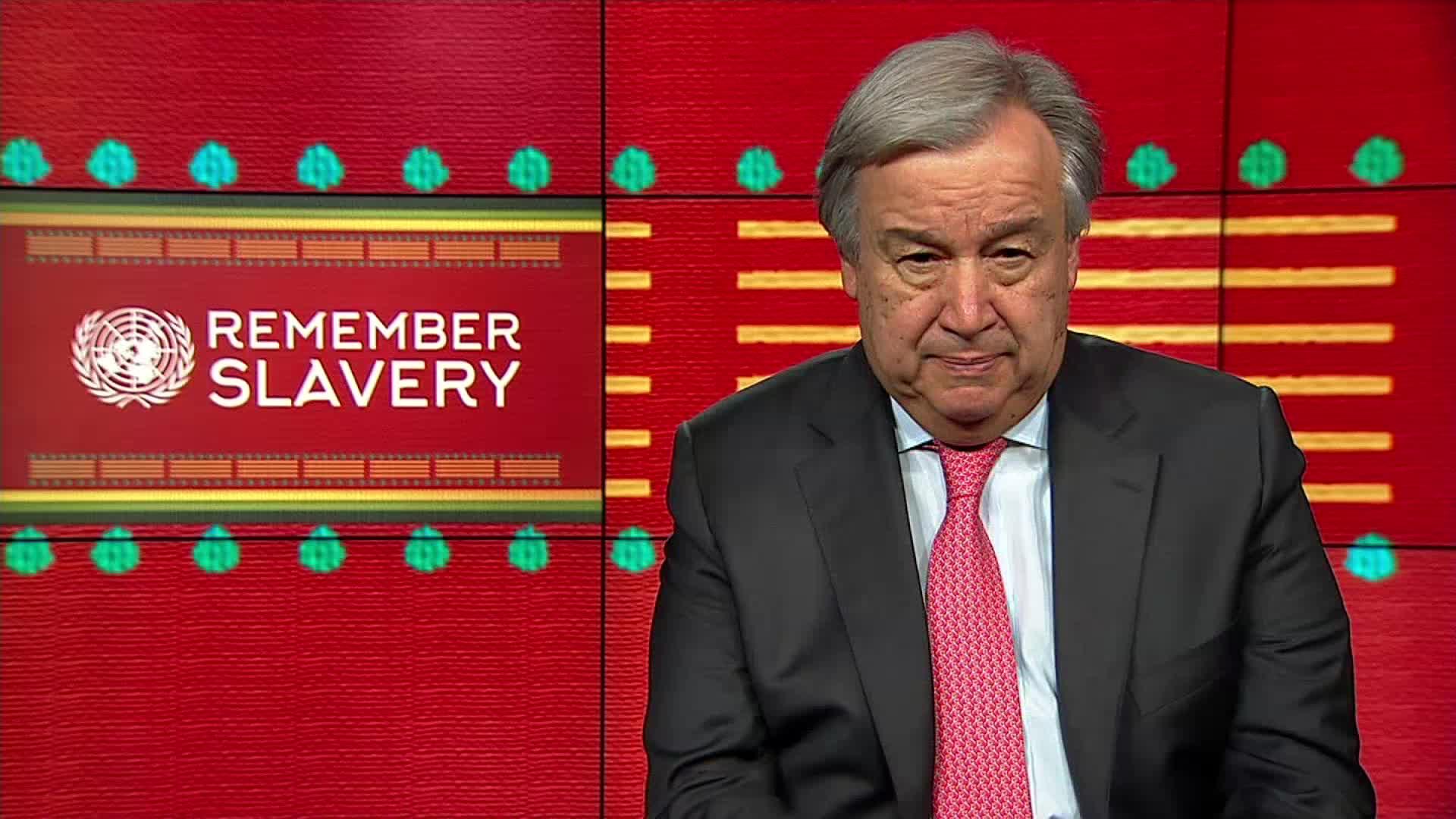
Secretary-General’s message on the International Day of Remembrance of the Victims of Slavery and the Transatlantic Slave Trade
Video message by UN Secretary-General António Guterres on the International Day of Remembrance of the Victims of Slavery and the Transatlantic Slave Trade (25 March)
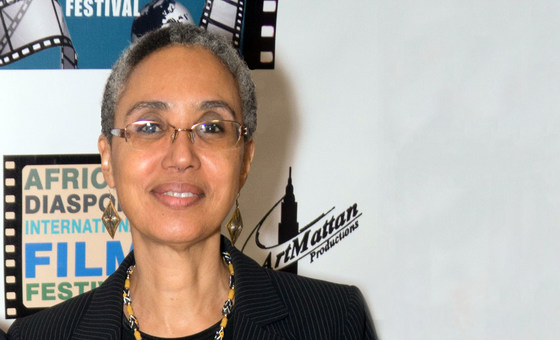
'Black Panther' movie a 'milestone in Afrocentric storytelling'
The worldwide success of the Black Panther movie has highlighted the reality of “the black experience” and spawned a positive conversation about African identity. That’s according to Diarah N’Daw-Spech, the New York-based co-founder of the African Diaspora International Film Festival, who has also been involved with the UN’s International Decade for People of African Descent initiative.
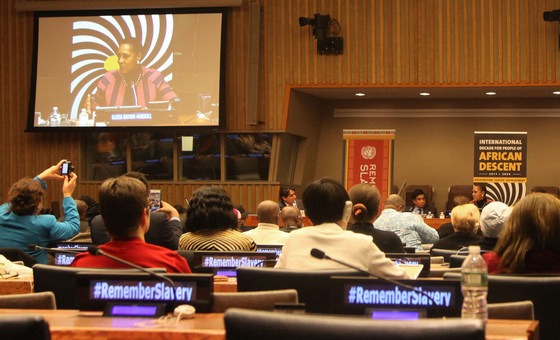
'Vestiges' of transatlantic slave trade persist today: US law professor
A conversation with Gloria Browne-Marshall, a constitutional law professor and author, about the status of people of African descent across the world.
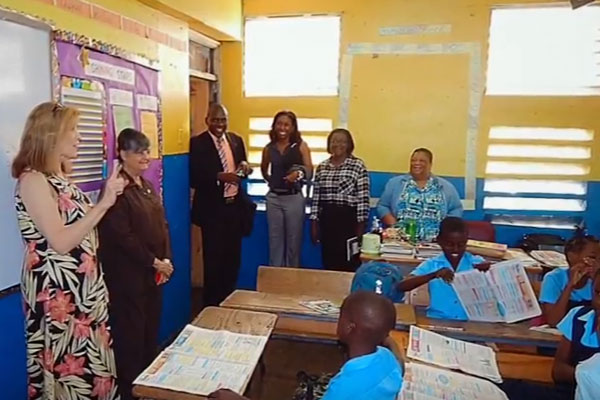
UN Human Rights - Fellowship Programme for People of African descent
The Annual Fellowship Program for People of African Descent offers an intensive learning opportunity to people of African descent on human rights issues of particular importance to Afro-descendants globally. This video outlines the experiences of some of the Fellows from the batch of 2016.
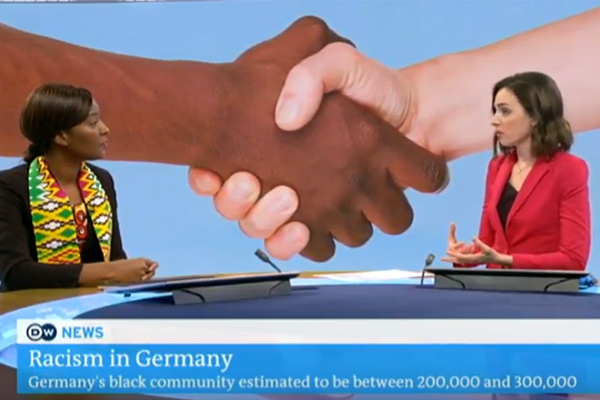
Interview on people of African descent in Germany
In this interview with Deutsche Welle, Elisabeth Kaneza, Fellow of the 2015 UN Human Rights Fellowship Programme on People of African Descent, speaks about the findings of the UN Working Group of Experts on People of African Descent on their visit to Germany, 20-27 February 2017.
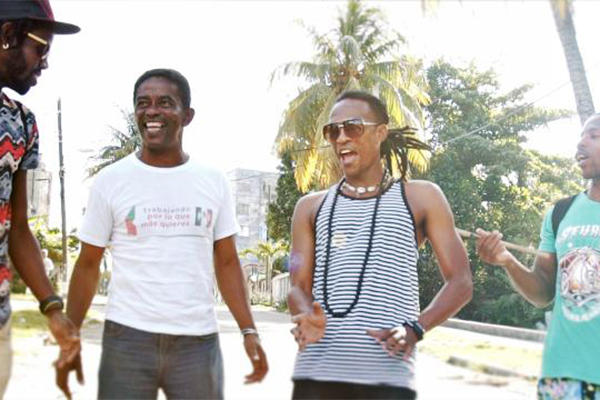
African Rhythms Permeate Cuba's Music
When Africans were brought centuries ago to Cuba to work on the sugar plantations, they also brought their cultural traditions including their music and instruments. When they arrived on the island, they embraced the tempo of the indigenous population and mixed it with their own African beat. Now young people are keeping the music of the enslaved alive in their own creations.
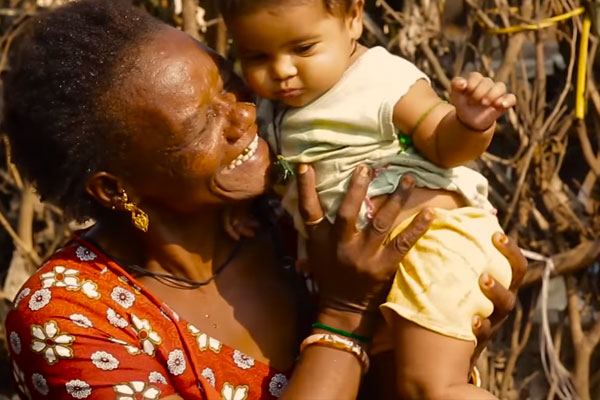
International Decade for People of African Descent (2015-2024)
People like Ervin Simmons in the United States, Sandra dos Santos in Brazil, and Imran in India, featured in this UN video, are all descendants of African slaves. Around 200 million people in the Americas identify themselves as being of African descent. Many millions more live in other parts of the world, outside of the African continent. The Decade aims to promote recognition, justice and development for people of African descent.

UNICEF Goodwill Ambassador Danny Glover delivering a message on the Decade for People of African Descent
UNICEF Goodwill Ambassador Danny Glover's video message for the 18th session of the Working Group of Experts on People of African Descent (11- 15 April 2016)
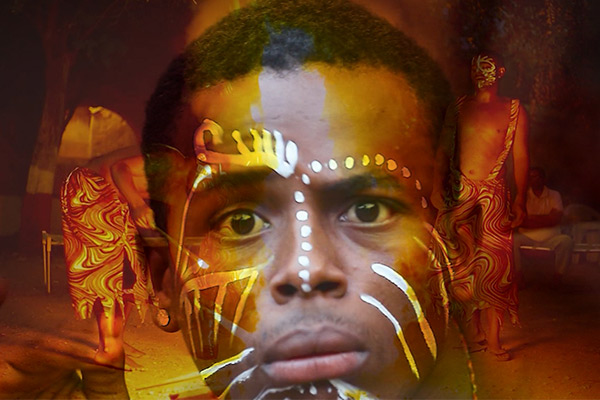
The Siddis: A Forgotten People
Gujarat in western India is home to more than 20,000 Siddis, an ethnic group of African descent. But today, many live on the fringes of society, in poverty. One young man is fighting to protect their unique heritage – as well as their close ties with the remaining Asiatic lions of the neighbouring Gir forest - by raising awareness of their culture through dance.
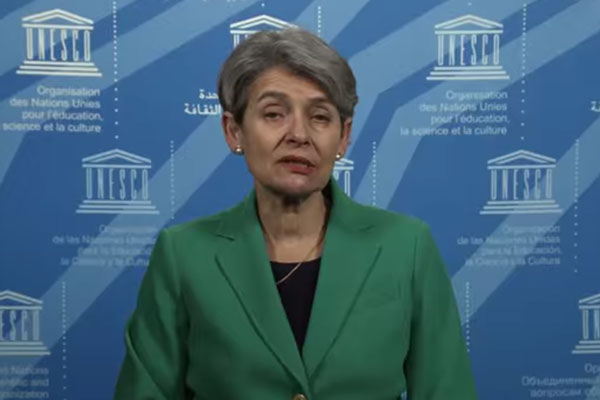
Irina Bokova message on the Decade for People of African Descent
UNESCO Director-General message at the UN General Assembly on the launch the International Decade on People of African Descent (2015-2024)
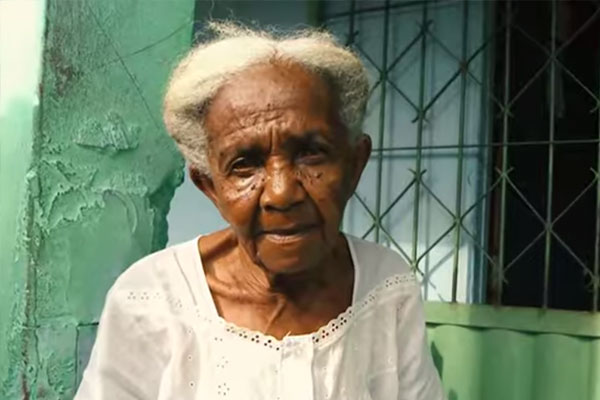
Brazil: The Story of Slavery
More than four million slaves were shipped to Brazil from the coast of Africa during the 16th century and onward. But the practice of slavery was abolished in 1888 when abolitionists brought the issue to the forefront. Today, descendants in Danda community – a quilombo – fight for their right to land that their ancestors once lived and worked on for generations.
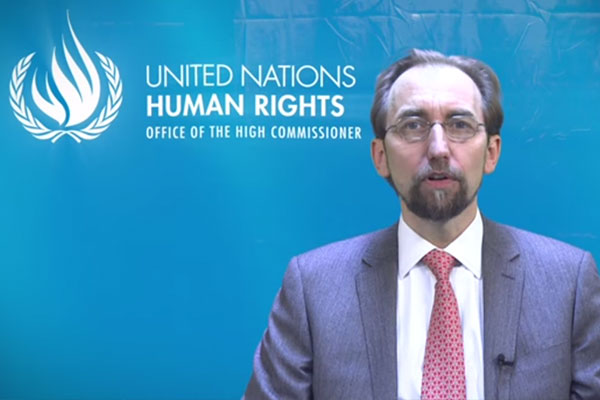
Message of United Nations High Commissioner for Human Rights
United Nations High Commissioner for Human Rights Zeid Ra’ad Al Hussein hails the launch of the United Nations Decade for People of Africa Descent.

Descendants of slaves: Ancestral land
The decade focuses on protecting the rights of people of African heritage, recognizing their contributions and preserving their rich cultural heritage. This also includes the descendants of slaves - the Gullah Geechee people - who live in South Carolina and Georgia in the United States.

General Assembly Special Event
Launch of the International Decade for People of African Descent. The main objective of the International Decade is to promote respect, protection and fulfilment of all human rights and fundamental freedoms for people of African descent, as recognized in the Universal Declaration of Human Rights.
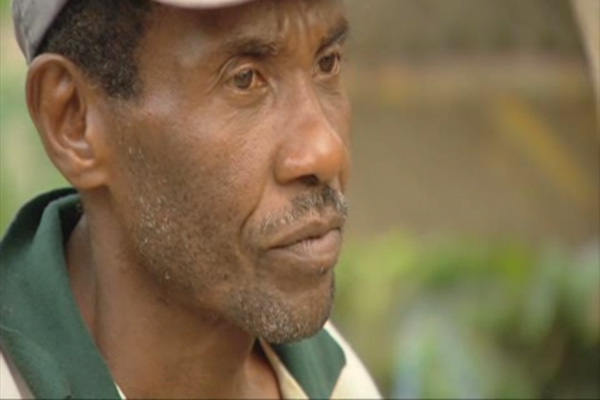
Integrating people of African descent in Bolivian society
Bolivians of African descent still find themselves living on the sidelines of society. While for many of them racism remains a part of their daily lives, the election of Jorge Medina, the first black deputy in the Bolivian parliament, offers a glimpse of hope.

United Nations honours Maya Angelou video
On 19 October 2011, American poet and author Maya Angelou was honoured at the United Nations as one of the elders of the community of literary greats and a strong voice for human and civil rights. Ms. Angelou displayed a poem entitled a "Brave and Startling Truth" that she wrote for the organization's 50th anniversary.
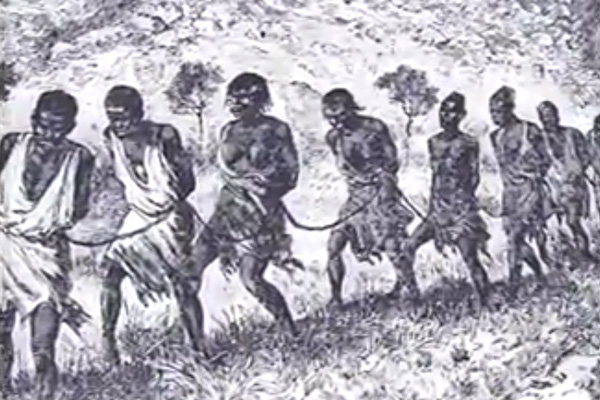
Slave Routes: A Global Vision
“Slave Routes: A Global Vision” is an educational and informative documentary supported and produced by UNESCO. It presents the diverse histories and heritages stemming from the global tragedy of the slave trade and slavery. It provides an overview of the massive deportation of African populations to different parts of the world including the Americas, Europe, the Indian Ocean, the Middle East, and Asia.
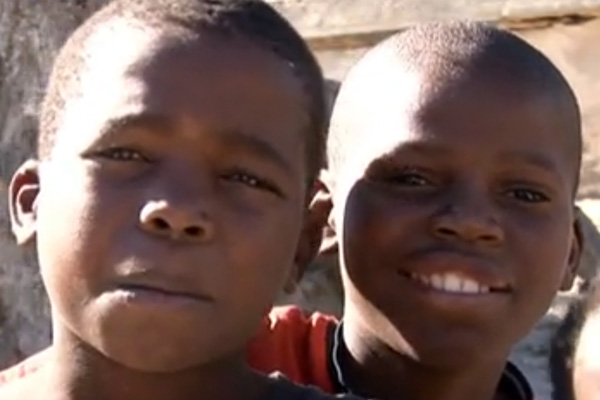
Slaves Routes: The Soul of Resistance
Slavery is told through its materiality under the guise of slaves voices but also of those called the master or slave trader. Each one tells his experience (similar to that of some others) : from deportation to the plantations, from daily life to abolitions... The slave system from the inside.

Ark of Return
The United Nations will unveil the "Ark of Return" at its headquarters in New York on 25th March. The "Ark of Return" is the Permanent Memorial in Honour of Victims of Slavery and the Transatlantic Slave Trade. Rodney Leon, an architect living and working in New York is the creator and designer.

